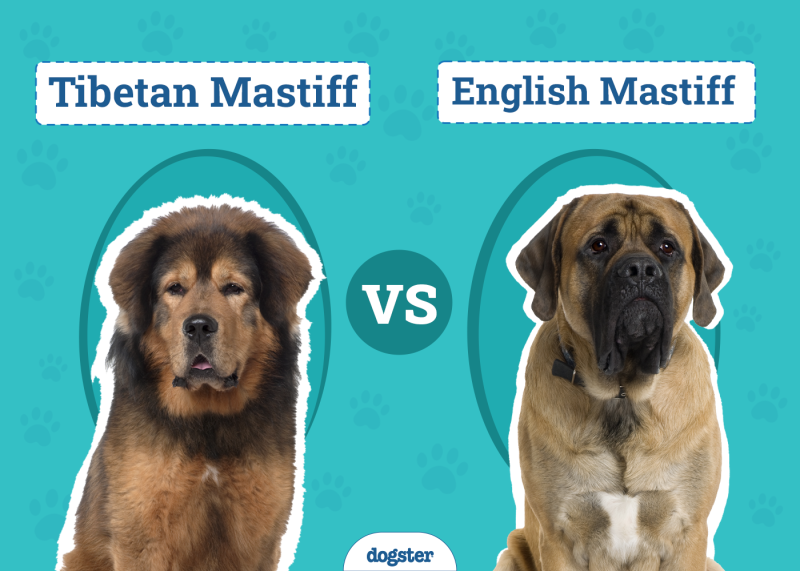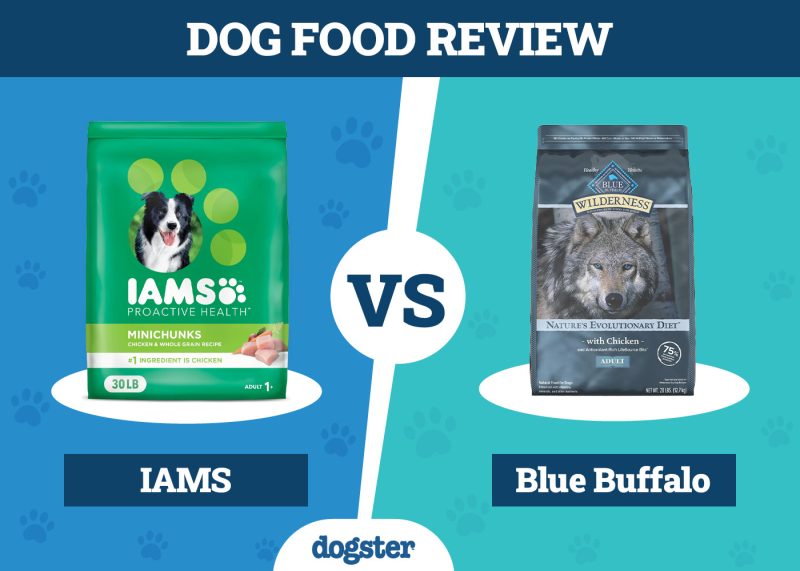“Is my dog happy?” It’s what every dog parent wants to know. But how can we tell whether our beloved pups are truly content? Since they can’t tell us in words, we must pay careful attention to their behaviors and body language. Even if you may already have a sense of your dog’s well-being, it is always helpful to learn about the common signs of a happy dog, as these will help you determine how your precious pup is feeling.

The 11 Signs That Your Dog is Happy

1. Waggy Tail
A wagging tail is undeniably one of a dog’s most obvious signs of happiness! For dogs with short tails, it’s often their entire posterior that wiggles with joy. However, paying attention to specific details and understanding your pet well is crucial because not all dogs are equally demonstrative with their tails. As a general rule, though, a loose, relaxed wag often indicates contentment, while a stiff tail held high may suggest restlessness or even anxiety.
2. Puppy Playfulness
Just like little kids, happy dogs love to play, whether it’s fetching a ball, frolicking with other dogs, or playing tug-of-war with their favorite toy. Although older dogs may have less energy than their younger counterparts, many still enjoy playtime with their favorite human. So, if your senior pup still has enough energy to join you for a quick Frisbee session, know that it’s a sure sign that they are still brimming with joy for life!
3. Relaxed Body
Happy doesn’t always mean exuberance. Your dog can show contentment with a simple, relaxed posture. This includes relaxed muscles, a gentle expression, and ears that are neither flat back nor excessively forward. Your dog may also lie down peacefully, sometimes exposing their soft, vulnerable belly, which is a clear sign of trust and joy.

4. Healthy Appetite
Your dog can show happiness through their appetite. Indeed, a healthy, enthusiastic eater is likely a happy puppy. However, sudden changes in their eating habits could indicate gastrointestinal problems or other underlying health issues, so it’s essential to monitor your dog’s food intake regularly.
5. Soft Eyes
As the saying goes, “The eyes are the windows to the soul.” This is especially true among our sweet canine companions! When your dog looks at you with their soft, loving eyes, their brain releases oxytocin, which is the hormone of love and attachment. It is this same hormone that forms the unique bond between a parent and their newborn.
6. Attention Seeking
Most happy dogs often behave like social butterflies with their humans. They crave attention, love playing with you, or may even shadow your every move. Of course, every dog has their own way of interacting with their human family, and constantly seeking attention isn’t always the ultimate sign of happiness. That said, if your dog suddenly withdraws and avoids interaction altogether, it’s likely a sign that something isn’t quite right.

7. High-Pitched Barks
Your dog may bark when they’re happy, but it’s often short, high-pitched barks—for example, to show joy when you come home. However, not all dogs do this to show their enthusiasm, so it’s important to pay attention to other signs.
8. Sleeping Like a Baby
If your dog sleeps like royalty, with only occasional twitches or relaxed movements during their sleep, this is usually an encouraging sign of good health and contentment. Conversely, changes in sleep patterns may indicate possible health issues.
9. Happy Facial Expression
Happy dogs often sport a grin: an open, relaxed mouth and upturned corners that resemble a smile. You might even catch them with their tongue hanging out, showing that they are totally enjoying their time. However, be careful not to mix up panting with “smiling.” Indeed, panting with their tongue out does not necessarily mean your dog is happy, but rather they could feel stressed or overheated.
Conversely, dogs may frown when worried, though some breeds have a naturally wrinkled appearance. If a furrowed brow is accompanied by bared teeth and lips curled back, this is clearly not an invitation to play!

10. Being a “Good Boy” or “Good Girl”
A happy dog is usually a well-behaved dog and won’t seek to destroy things around the house. On the flip side, bored, stressed, and unhappy pups may start to exhibit destructive behaviors.
11. Sharing Their Toys
When your pup offers you their toys, it’s a good sign that they’re happy. Well-balanced dogs usually enjoy socializing, so sharing their toys shows that they trust you enough to give you their precious treasures! It’s also an adorable way for them to bond with you and have fun together.

Conclusion
No dog owner wants to see their fur baby unhappy. That’s why understanding how your dog shows their happiness is the best way to provide them with the best possible care and nurture a beautiful relationship between the two of you. While paying attention to the signs described here is a good start, you are ultimately the one who can best interpret your dog’s behavior and ensure that they are leading a joyful life by your side.
Featured Image Credit: Lelusy, Shutterstock


















